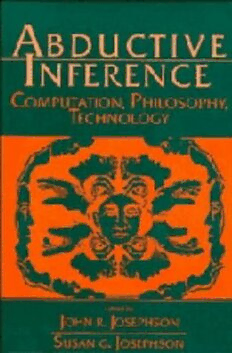
Abductive Inference: Computation, Philosophy, Technology PDF
314 Pages·1994·6.667 MB·English
Most books are stored in the elastic cloud where traffic is expensive. For this reason, we have a limit on daily download.
Preview Abductive Inference: Computation, Philosophy, Technology
Description:
In informal terms, abductive reasoning involves inferring the best or most plausible explanation from a given set of facts or data. This volume presents new ideas about inferential and information-processing foundations for knowledge and certainty. The authors argue that knowledge arises from experience by processes of abductive inference, in contrast to the view that it arises noninferentially, or that deduction and inductive generalization are enough to account for knowledge. The book tells the story of six generations of increasingly sophisticated generic abduction machines and the discovery of reasoning strategies that make it computationally feasible to form well-justified composite explanatory hypotheses, despite the threat of combinatorial explosion. This book will be of great interest to researchers in AI, cognitive science, and philosophy of science.
See more
The list of books you might like
Most books are stored in the elastic cloud where traffic is expensive. For this reason, we have a limit on daily download.
